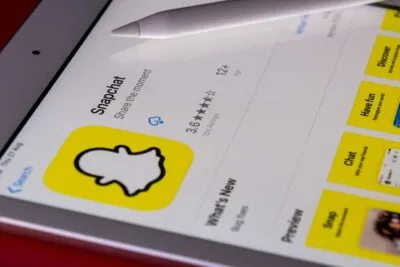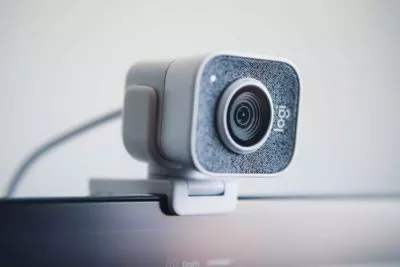
- Originally Published on September 20, 2024
Selfies Leaked Online? Immediate Steps to Take
If you’ve discovered your private selfies or nude photos leaked online, I understand how violated, embarrassed, and overwhelmed you may feel. You are not alone. As an attorney who has helped hundreds of clients deal with this devastating situation, I want you to know that you have options. By following the steps I outline in this article, you can start taking back control, minimizing the damage, and moving on with your life.
The first and most crucial actions are to document everything and get the photos removed from websites as quickly as possible. I’ll walk you through the process and explain your legal rights. While this situation can create intense anxiety and it feels like your world is crashing down, there is hope. With the right help and game plan, you can recover from selfies being leaked online. Let’s get started.
If your selfies have been leaked online without your consent, immediately document where the images appear and contact the websites to request removal. Explore your legal options, like filing a police report or suing the person who shared your photos. Lean on trusted friends or a therapist for support, and know that you can recover from this. Minc Law’s attorneys are here to help.
7 Crucial First Steps to Take When Your Selfies Are Leaked Online
- Immediately screenshot all instances of your photos appearing online. Document key information like:
- The exact URLs where your selfies are posted
- The date and time you discovered them
- Any usernames, profiles, or identifying information of the person who posted them
- Any relevant communications, like the poster threatening or harassing you
- Save copies of the actual selfies that were leaked. Having the original files can help prove your ownership of the images.
- Make a list of all the websites where your photos appear. This will be important for sending takedown requests.
Thoroughly documenting the incident strengthens your case if you choose to pursue legal action. It also helps when working with websites to have your photos removed, as you can provide evidence of the unauthorized posting. While it’s painful to see your private images plastered online, gathering evidence is a critical first step to addressing the situation.
How to Get Your Leaked Selfies Removed from the Internet
1. Locate the website’s contact information and send them a takedown request. Explain that you are the owner of the photos and they were posted without your consent. Provide links to the offending content.
2. If the website does not respond or comply, file a Digital Millenium Copyright Act (DMCA) takedown notice. This formally notifies the website that they are hosting content that infringes on your copyright.
3. For large platforms like Facebook, Twitter, Instagram, Pornhub and Google, report the content through their designated processes:
- Facebook: facebook.com/help/contact/274459462613911
- Twitter: help.twitter.com/forms/private_information
- Instagram: help.instagram.com/contact/584460464982589
- Pornhub: pornhub.com/content-removal
- Google: support.google.com/legal/answer/3110420
4. Escalate to a service like Minc Law’s to handle more complex removals, like photos spread across many websites, cases involving hacking, or uncooperative web entities. We have extensive experience with these sensitive situations.
The sooner you can get your private photos off the internet, the better. It prevents the content from spreading further or showing up in search results. If a website refuses to remove your selfies, don’t hesitate to involve an experienced attorney. You have a right to protect your privacy.
Can You Sue Someone for Leaking Your Private Selfies?
In many cases, yes. 48 states and Washington D.C. have revenge porn laws on the books that specifically address the nonconsensual sharing of nude or sexual images. Depending on your state, the crime may be a misdemeanor or felony. Penalties can include jail time and significant fines.
Even if your state does not have a revenge porn law, the perpetrator may still be prosecuted under other criminal statutes like harassment, stalking, extortion, or computer hacking.
To press criminal charges, you would file a police report explaining the situation. Provide as much documentation as possible. The police will investigate and may refer the case to the state prosecutor. If the perpetrator is convicted, they would face the penalties prescribed by the law.
You may also have civil remedies available, meaning you could sue your perpetrator directly for monetary damages. Civil lawsuits can provide compensation for the personal, professional, and psychological harm caused by the leak. You may be able to collect damages for pain and suffering, damage to your reputation, lost wages if you lost your job, and more.
An experienced attorney can review your unique situation and advise on the best legal course of action. In many cases, we’re able to resolve image leaks outside of court through legal demands and negotiated settlements. However, we’re fully prepared to file a lawsuit and fight for your rights in court when necessary.
How to Cope with the Mental Health Impact of Having Your Intimate Photos Leaked
Discovering your private images displayed online for the world to see is a deeply violating, traumatic experience. You may feel a range of intense emotions, including shame, anger, anxiety and depression. Know that your feelings are valid and this is not your fault.
Self-Care is Key
In the aftermath of a selfie leak, self-care is critical. Be gentle with yourself. Engage in activities that make you feel good and relieve stress, whether it’s yoga, spending time in nature, or indulging in your favorite shows. Prioritize eating well, getting enough sleep, and staying hydrated.
Set Boundaries
Setting boundaries is also key. You don’t owe anyone information about what you’re going through. Let friends and family know what you need, whether it’s a listening ear or space.
Seek Support
Healing often requires support. Lean on trusted loved ones who offer empathy and compassion. If you’re struggling to cope, don’t hesitate to seek professional help. A licensed therapist can provide guidance on processing the trauma in a healthy way and rebuilding your sense of safety. Look for a mental health professional who specializes in sexual violence, PTSD, or cyber harassment.
If you’re feeling overwhelmed or in crisis, help is available. You can contact the Suicide and Crisis Lifeline by calling or texting 988 for free, confidential support 24/7.
You may also find it helpful to connect with others who have experienced similar situations. Online and in-person support groups can provide a safe space to share your experience, feel less alone, and learn coping strategies.
Remember: your selfies do not define you. You are so much more than your images. This awful situation does not diminish your worth or change who you fundamentally are. With time and support, you can heal and move forward.
What Are the Best Ways to Protect Your Selfies and Prevent Leaks?
While there’s no foolproof way to prevent selfies from being leaked, you can significantly reduce your risk by implementing strong digital privacy practices:
- Use strong, unique passwords for all your accounts and devices. Avoid easily guessed passwords like birthdates or pet names.
- Enable two-factor authentication on your accounts whenever possible. This provides an additional layer of protection even if a password is compromised.
- Be very selective about who you share private images with. Once you hit send, you lose control over how that photo will be used.
- If you do choose to share intimate photos, consider using an app like DiscKreet or Confide that automatically deletes images and notifies you of any screenshots.
- Periodically conduct a reverse image search of your selfies to check if they appear anywhere online without your knowledge. You can use a tool like TinEye or Google Images.
- Avoid storing sensitive photos on your phone or in the cloud. Keep them in a secure, encrypted location like a password-protected flash drive.
- Be wary of any requests from strangers to share private photos or videos, especially if you haven’t met in person. This may be a ploy to obtain content for blackmail purposes.
While taking these precautions requires more effort, it’s worth it for the peace of mind. Treat your private photos like the valuable personal property they are. The better you protect them, the lower the chances of a devastating leak.
You Can Recover From Selfies Being Leaked Online
Dealing with private photos being shared online without consent is an incredibly violating experience. But you don’t have to go through it alone. By taking these proactive steps to remove the content and explore your legal options, you can start reclaiming your privacy and peace of mind.
At Minc Law, we’re deeply committed to helping clients navigate this difficult situation. Our experienced attorneys understand the complex legal and emotional aspects of online privacy violations. Whether you need assistance with content removal, filing a lawsuit, or simply understanding your rights, we’re here to provide skilled, compassionate guidance.
Remember, you deserve to have control over your own images and privacy. Don’t let a selfie leak define you. With the right support and legal advocacy, you can recover from this and move forward with confidence.
Take the first step towards justice by scheduling a confidential consultation with one of our attorneys. Call us at (216) 373-7706 or complete our contact form. We’re ready to put our experience to work for you.
Get Your Free Case Review
Fill out the form below, and our team will review your information to discuss the best options for your situation.
This page has been peer-reviewed, fact-checked, and edited by qualified attorneys to ensure substantive accuracy and coverage.





